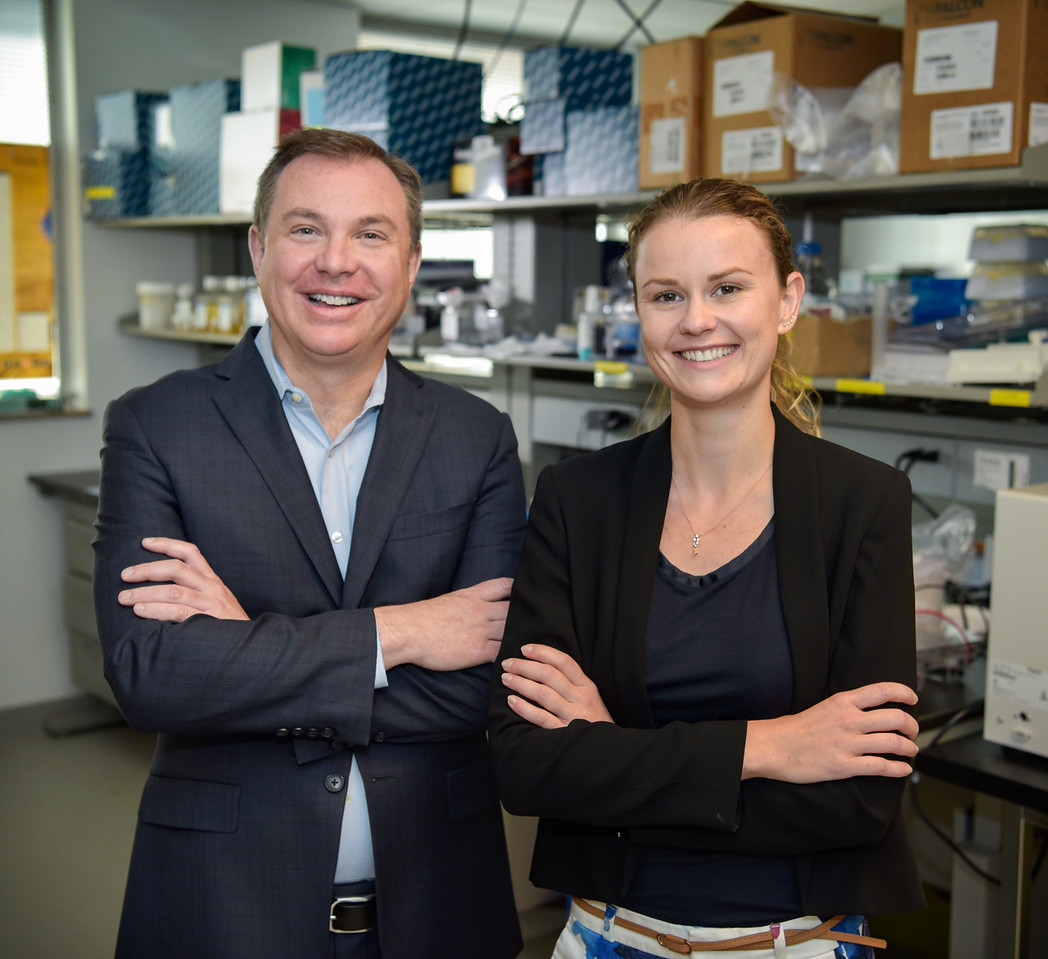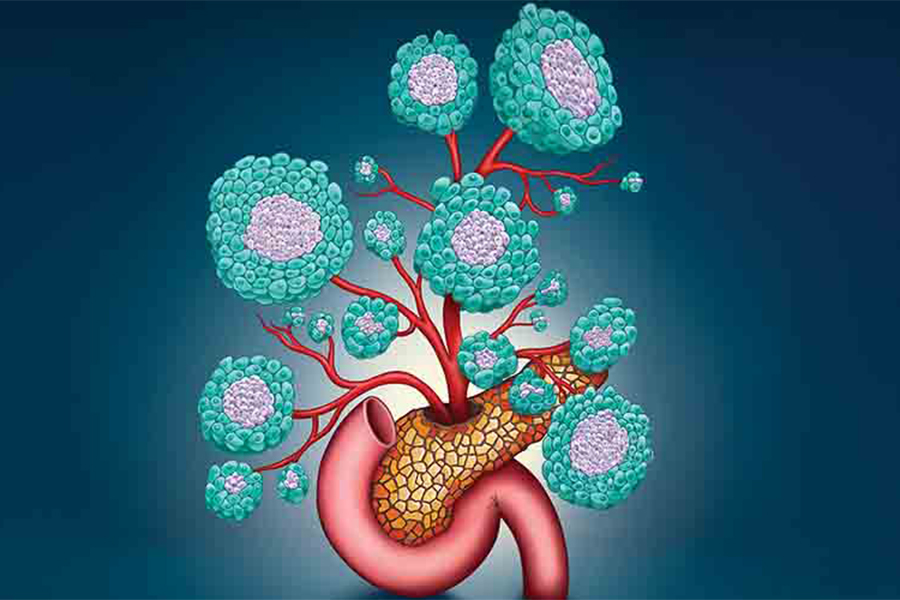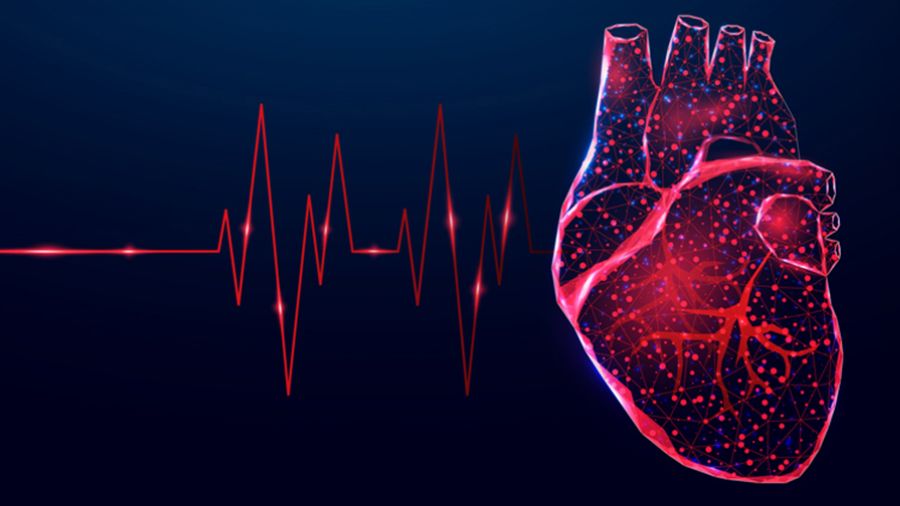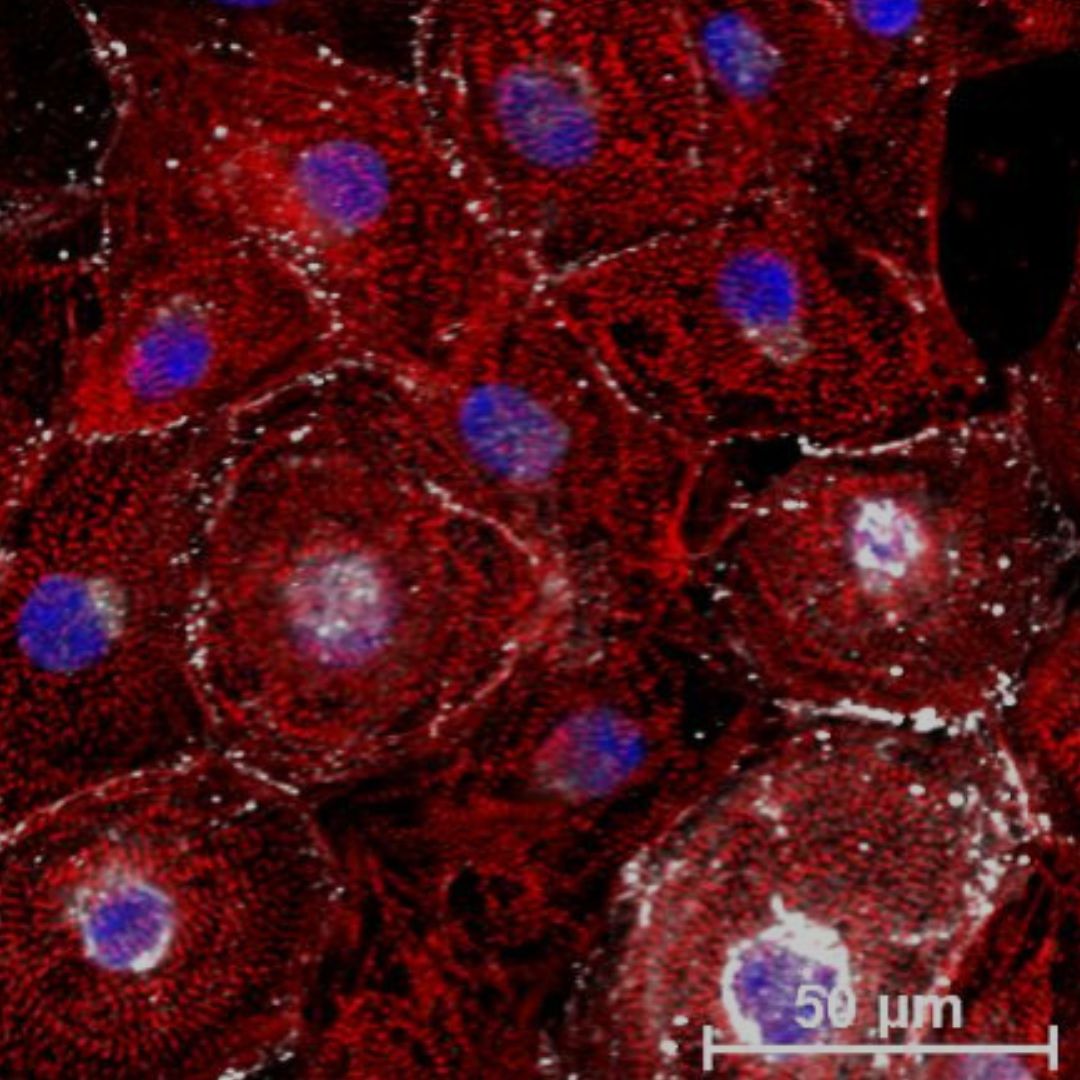For researchers at UHN, 2020 was unlike any other year. The onset of COVID-19 forced all experiments to come to a halt and led to the shutdown of laboratories for three months, resulting in a significant decrease in productivity.
For Drs. Michael Laflamme and Stephanie Protze, principal investigators in the McEwen Stem Cell Institute’s cardiac program, there was no choice but to persevere through the challenges to continue making progress in their critical efforts to develop new treatments for heart disease. These world-leading researchers are working on groundbreaking stem cell-based therapies to prevent heart failure and treat heart rhythm disorders.
“COVID-19 has definitely had a big impact on our work,” notes Dr. Laflamme, who is also the Robert R. McEwen Chair in Cardiac Regenerative Medicine. To maintain social distancing, only 50 per cent of lab staff are allowed in the facility at a time. “We’ve learned that 50 per cent in-person effort doesn’t always equate to 50 per cent of usual productivity – sometimes it means we’re less productive.”
Limited international travel has also made it difficult to recruit talented researchers from around the world who could contribute significantly to advancing research efforts. “We weren’t able to hire highly qualified international postdoctoral applicants to the lab because an international move wasn’t feasible during COVID-19,” acknowledges Dr. Protze, who is also the Chair in Cardiac Regenerative Medicine at the McEwen Stem Cell Institute.
Collaboration is an important part of advancing research projects and bringing them closer to patients. Researchers have needed to adapt to collaborating in the new, virtual world, which has presented its own challenges. “It is just so much harder to brainstorm and problem-solve together via Zoom or Microsoft Teams. I miss my whiteboard!” emphasizes Dr. Laflamme.
Despite the challenges presented by the pandemic, 2020 was an exciting year for Dr. Protze, an early career researcher. She gave an invited talk at the annual meeting of the International Society for Stem Cell Research, the biggest meeting in the stem cell field, which was held virtually this year. “This was my first time presenting at that meeting as an independent principal investigator and sharing work from my own research group,” shares Dr. Protze.
Meanwhile, Dr. Laflamme has made important strides towards developing better heart muscle cells from stem cells, improving upon his previous versions of these cells. He hopes to one day transplant these cells into patients as a way of restoring healthy heart muscle in areas that have been damaged during a heart attack.
“During 2020, members of the lab acquired exciting new data that transplantation of these new cells leads to much better outcomes than transplantation of our previous heart muscle cells,” describes Dr. Laflamme. Performing rigorous tests with these cells in 2021 will bring them a step closer to patients. With this treatment, Dr. Laflamme will help prevent debilitating heart failure in heart attack survivors.
In addition to conducting these tests, Dr. Laflamme’s hope for 2021 is that the world starts to resemble something closer to normal and that he can safely meet with his lab group in-person. “This will be welcomed both personally and professionally,” he emphasizes.

For Dr. Protze, she hopes to continue building her lab in the coming year. “I am still in the process of setting up my lab and COVID-19 definitely delayed completing equipment purchases,” explains Dr. Protze. She is developing a biological pacemaker from stem cells that will hopefully replace electronic pacemakers as a treatment for heart rhythm disorders. Unlike electronic pacemakers, biological pacemakers do not require invasive surgery every 5-10 years to replace the batteries.
“In 2021, we hope to finish establishing the equipment to help us assess the functionality of our biological pacemaker,” describes Dr. Protze. With this equipment in place, Dr. Protze will be able to conduct the tests she needs to assess and optimize her biological pacemaker before bringing this revolutionary treatment to patients.
While 2020 presented many challenges, researchers at the McEwen Stem Cell Institute are optimistic about what 2021 has in store. The generosity of donors has helped them navigate this uncertain time, providing the stability they need to continue researching and supporting their teams when government funding cycles were interrupted.



